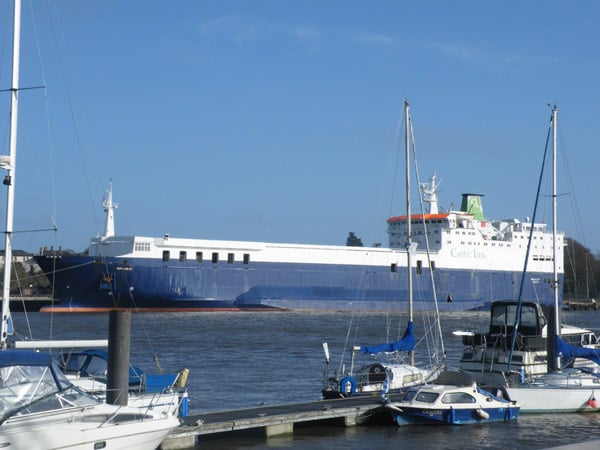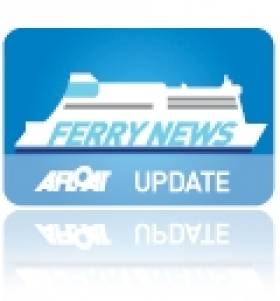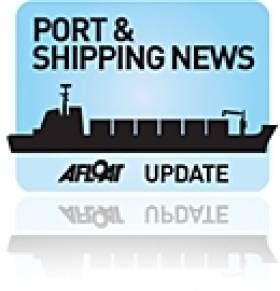Displaying items by tag: Caribbean Sea
Celtic's French Ferry Figures
Operating the route is the 2008 built ro-pax Norman Voyager, at 26,500grt, the vessel has a larger passenger capacity for 800 and additional facilities compared to the previous vessel, Diplomat. In addition the newer Italian built vessel has space for 200 cars and 120 trucks. The ro-pax has a service speed of 22.9 knots is claimed to be the fastest ship serving on the direct routes to France, taking 18-hours.
In 2005 the Wexford based company took over the route from P&O (Irish Sea) and continued to offer what was primarily a freight-only service served by the existing route vessel, the 16,776grt European Diplomat. The vessel was also sold to Celtic Link and renamed Diplomat and could only provide a limited passenger certificate for 74, which was mostly taken up by truck-drivers.
With the introduction in December 2009 of the chartered Norman Voyager from Meridian Marine Management, the Diplomat was laid-up in Waterford (click here). The 1978 built vessel was then chartered by Celtic Link to trade in the Caribbean Sea.
Celtic's Caribbean Connection
The O'Flaherty Brothers of Wexford have a diverse range of shipping interests ranging from a fishing trawler fleet, a short-sea coaster and ferries under the Celtic Link Ferries banner, writes Jehan Ashmore.
The shipping family can now also claim to have operations in the far-flung seas of the Caribbean Sea through the chartering of their freight-ferry Diplomat (1978/16,776grt) which was replaced late last year by Norman Voyager (2008/26,500grt) on the Rosslare-Cherbourg route.

Celtic Link Ferries former French freight-ferry, Diplomat laid-up at Waterford earlier this year is now serving in the Caribbean Sea. Photo: Jehan Ashmore/ShipSNAPS
Diplomat spent the winter laid-up at Waterford, where the 32-year vessel was one of the largest vessels to dock at the city-centre quays and formed a temporary albeit floating landmark.
In April the veteran departed Irish shores to take up a new career in the Caribbean. The Diplomat now serves three weekly round trips for Marine Express between the ports of Mayaguez and the capital of San Juan in Peurto Rico and Rio Haina and San Domingo, the capital in the Dominican Republic, which shares the large island of Hispaniola with Haiti.
In an earlier career, the Diplomat whilst serving as the Baltic Ferry, was requistioned by the British Military of Defence as part of the Falkland Islands task force in the war with Argentina in 1982. The vessel saw action which involved Royal Air Force Harrier Jump-Jets landing on the cargo-deck using the aircraft's unique vertical take-off lift (VTOL) capability.
Another vessel under the O'Flaherty sphere of operations, Finnforest (1978/15,525grt), a sistership of Diplomat and built from a series of successful Searunner-class vessels ordered by Stena Rederi, returned to Dublin early this year. The vessel had spent several years on charter to Finnlines serving in the Baltic Sea between Helsinki and Gdynia, Poland.
Finnforest like the Diplomat underwent dry-docking at Dublin, with both vessels heading afterwards for lay-up periods at Waterford. Finnforest remains laid-up awaiting a charter while berthed alongside the city-centre's disused quays on the Co. Kilkenny side of the River Suir.






























































